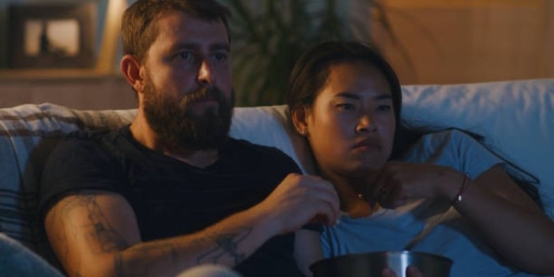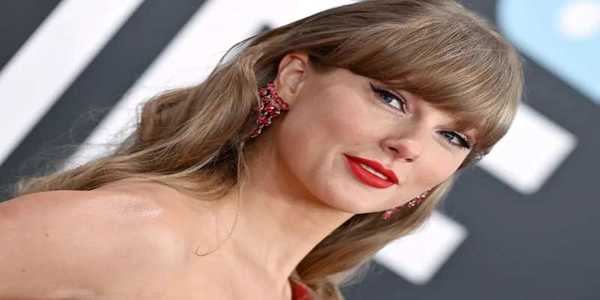TV Shows
TV Shows With The Most Memorable One-Liners
Few TV aspects make it into mainstream culture as irresistibly as a particular one-liner. A single line of dialogue—uttered at the precise moment—can define a character, get the social media roundups going, and echo over the years. Think "How you doin'?" or "I am the one who knocks."
Few TV aspects make it into mainstream culture as irresistibly as a particular one-liner. A single line of dialogue—uttered at the precise moment—can define a character, get the social media roundups going, and echo over the years. Think "How you doin'?" or "I am the one who knocks."
What Makes a One-Liner Memorable?
On TV, a "one-liner" is a short, compact sentence or phrase of emotion, humor, or character delivered in a single take. It's more effective than ordinary conversation—too frequently, it's a punchline, an epiphany, or a defining statement. Recalled one-liners typically share some features:

Simplicity: Easy to quote, perhaps only a few words.
Timing: Spoken at a climactic or explosive moment.
Comedic or emotional punch: Induces laughter, shock, tension, or identification.
Cultural connection: Resonates with universal sentiment or social dynamics.
As a result of these qualities, they are still being quoted years on. They appear on memes, social media, merchandise, and are included in popular culture in daily conversation. The line gains more popularity than the show—often it stands alone.
Iconic TV Shows Infamous for Iconic One-Liners
Following are some of the most popular television programs whose dialogue has transcended their initial context. Each subsection states a highlight quote, who says it, where it is used, and why it became popular.
Friends
"How you doin'?" — Joey Tribbiani (Matt LeBlanc)
Context: Joey uses this as a sexually charged pick-up line repeatedly with women during the show, but it became a common trademark.
Why it works: It's effortless, informal, and instantly recognizable. Its flexibility makes it easy for viewers to insert playfully into everyday conversation. Because Friends continues to be heavily binge-streamed, "How you doin'?" is still a shortcut to smooth cheekiness.
Breaking Bad
"I am the one who knocks." — Walter White (Bryan Cranston)
Context: In Season 4, Walter bullies his wife Skyler, dismissing himself as a victim. He enforces dominance, declaring himself not the victim, but the danger.
Why it works: It is a shift in his character—kind teacher becomes frightening character. The line is forceful and menacing, and now used to provide force where quoted. It's become iconic of assuming power—or the illusion of it.
The Simpsons
"D'oh!" — Homer Simpson (voiced by Dan Castellaneta)
Background: Homer exclaims "D'oh!" each time something goes wrong—he's forgotten something, done something incorrect, or face the non-logic of daily life.
Why it works: It's one syllable, it's copyable, it's funny, it's human. It's become so widespread that it has been added to the Oxford English Dictionary as a recognized interjection.

Game of Thrones
"Winter is coming." — Eddard "Ned" Stark (Sean Bean) & Stark family motto
Context: Repeated early in the series as a literal and metaphorical prediction of disaster. They become inextricably linked with Stark identity and motifs throughout the show.
Why it works: It's ominous and universal: change is inevitable, danger is looming. The line transcends the show to become a line referring to any looming threat or change. It's used now in headlines, memes, and actual commentary.
The Office (U.S.)
"That's what she said." — Michael Scott (Steve Carell)
Context: Michael follows this line after innocently phrased something (i.e. "That was hard") to slip in a double entendre. It devolved into a catch-all running gag.
Why it works: Its flexibility allows one to cram it into plenty of contexts, so it is basically inexhaustible. It became meme shorthand for innuendo in everyday conversation.
Seinfeld
"No soup for you!" — The Soup Nazi (character)
Context: In a 1995 episode, a rigid soup peddler refuses service to patrons who don't adhere to his stringent rules, uttering the phrase.
Why it works: It's ridiculous, direct, and character-revealing. The stringent scenario is ridiculous and humorous, and the phrase was memed as a euphemism for stringent refusal or exclusion.
The Sopranos
"Cause every day is a gift." — Tony Soprano (James Gandolfini)
Context: Tony often struggles with existential Stress. This line comes in contemplative moments, acknowledging the burden and vulnerability of existence.
Why it works: It humanizes a mafia boss. It transcends crime drama, to mortality, to appreciation, and doubt.
The X-Files
"The truth is out there." — (Narrative tagline; spoken in intro/outro)
Context: This phrase sums up the show's mission: agents Mulder and Scully search for hidden or suppressed truths.
Why it works: It's inspirational and mysterious. It provokes curiosity and skepticism. As a fan slogan, it's called upon in daily life when seeking to make sense or be equal.

How These One-Liners Shaped Pop Culture
These catchphrases exist far longer than their original installments. They travel on memes, internet forums, and social media statuses. They are found on T-shirts, coffee mugs, posters, and all sorts of merchandise. New television writers and showrunners cite or spoof them, paying tribute to their impact. Nostalgia and rewatch culture on streaming sites also keep them up: individuals stumble or re-stumble upon those lines and spread them again.
When these quotes ripple outward, they become part of shared cultural vocabulary. An individual can say "How you doin'?" or "That's what she said" without ever citing Friends or The Office—the words themselves have meaning. When used in advertising, journalism, and everyday conversation, these catchphrases invoke the shows while also evolving with new situations.
Honorable Mentions
Other television shows offered lines so quotable they deserve mention:
How I Met Your Mother: "Suit up!"
Grey's Anatomy: "Pick me, choose me, love me."
Rick and Morty: "Wubba lubba dub dub."
The Wire: "All in the game."
Whole House: "You got it, dude!"
Friday Night Lights: "Clear eyes, full hearts, can't lose."
Every one of them has a distinct tone—humor, drama, idealism—that fans all share.
Why One-Liners Endure
At their best, one-liners reduce character, story, feeling, or humor to a single tight bundle. Their brevity makes them transmitable; their emotional or comedic stake makes them memorable. Someday, they take on independent lives as cultural signals. Because they operate independent of contexts—beyond the initial show—they get instantiated in everyday speech, memes, and nostalgia loops.
Even as TV trends change, these lines remain magnets. They anchor the memory of a show and bond audiences across generations. The show might disappear, but the one-liners linger.
Sources
Movies
The Disney+, Hulu, HBO Max Bundle: Is It Really Worth The Cost?
August 20, 2025
Celebrity
A Plastic Surgeon Exposes The Truth About Celebrity Procedures
August 21, 2025
TV Shows
Binge-Worthy TV Shows Perfect For Family Movie Nights
August 30, 2025
TV Shows
7 Classic Family Sitcoms Worth Revisiting
September 11, 2025
Outfit Ideas
The 8 Most In-Demand Fashion Trends Of 2025
September 9, 2025
TV Shows
20+ TV Shows That Make You Laugh and Cry
September 12, 2025

Outfit Ideas
The Ultimate Guide To Dressing For Your Body Type
September 3, 2025

Celebrity
Child Stars From The 2000s: Where Are They Now (Recent Photos)
August 21, 2025

Celebrity
This Is How Much Your Favorite Celebrity Is Really Worth In 2025
August 19, 2025

Outfit Ideas
This One Trick Can Make Any Outfit Look More Expensive
August 29, 2025

Outfit Ideas
12 Best Outfits For Women Over 40 That Are Timeless
September 1, 2025

Outfit Ideas
You're Wearing Jeans Wrong. Here's The Right Way To Style Them.
August 20, 2025